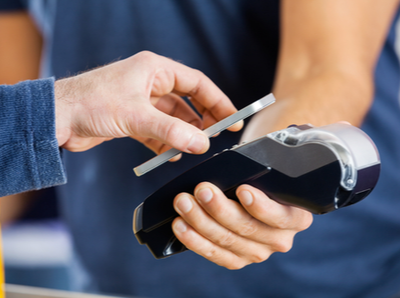Smart Payment Association Releases 2021 Smart Payment Card and Module Global Shipment Figures

The smart payment cards market continues growing:
• 2.63 billion smart payment cards and modules[1] were delivered worldwide in 2021 by SPA Members and Advisory Council participants[2]
• Contactless cards accounted for 76% of all shipments hitting the 2 billion threshold for the first time
• Circa 100 million next-generation eco-friendly smart payment cards delivered globally
Munich, 2nd June 2022 – The Smart Payment Association (SPA), the trade body of the cards and mobile payments industry, today released findings from its annual review of the smart payment cards market.
Led and organized by the SPA, collecting data from its own Members and participants of the SPA Market Monitoring Advisory Council, the annual analysis of the SPA worldwide smart payment card and module shipments reveals a total shipment volume of 2.63 billion units delivered in 2021. These numbers confirm that the demand for secure payment cards continues to grow: 2021 SPA shipments start to recover versus 2020, posting +5% growth. The SPA believes the figures would have been even higher had it not been for the chip shortage affecting the industry. SPA members suffered from chip allocations preventing them from fully serving the demand of their customers.
“Last year was again a challenge on its own. The ongoing pandemic continued with strong and unpredictable global supply disruptions. Our entire industry suffered from local lockdowns affecting the production and supply of chips, semi-finished goods, and cards as well as from associated air freight issues due to lower capacities. On the other hand, our sector itself shows strong resilience in particular due to a further growing contactless card demand, driven by increased consumer needs towards a preference of easy, contact-free, and secure payment methods. Overall, the figures indicate an upward trend in shipments, attributed to this higher consumer request for contactless cards.” says Andreas Strobel, President SPA.
“However, persistent, and wide-reaching global chip shortages negatively impacted the industry’s ability to achieve a more sustained pace of recovery. Despite this limiting factor, SPA Members, in close coordination with their respective suppliers and clients, strived to optimize utilization of all available product types and their respective stock levels as well as to achieve more efficient and lean forecasting and ordering policies. Thanks to this closely tracked supply and demand coordination, resulting in an improved flow of goods, the SPA members were able to supply banks and their customers with smart payment cards.” he continued.
All regions posted growth versus the previous year, except the USA due to an anticipated “down-cycle” and China. Europe was the fastest growing market and CISMEA continued to grow versus the 2019 record year.
With chip supply challenges expected to continue in 2022 and throughout 2023, SPA is taking action to support this growth in the coming months and minimise card delivery disruptions.
Demand for contactless payment cards accelerates: the contactless payment card is becoming the new normal
The pandemic crisis created a fundamental and permanent shift in consumer behaviour and contactless card usage continued to surge in 2021.
In 2021, SPA reports 76% of all card shipments had contactless functionality, compared to 69% in 2020 and 59% in 2019. In absolute figures, an additional 269 million contactless cards and modules were shipped in 2021 compared to the previous year, reaching the 2 billion threshold for the first time in history.
Every country in the world now issues dual interface cards featuring contactless payment card functionality and demand in countries including Mexico, Indonesia, and India now matches that in more mature markets.
Eco-friendly card shipments take off
In 2021, SPA Members and Advisory Council Members participating in the Market Monitoring process shipped almost 100 million eco-friendly cards[3] to issuers around the globe. This three-fold increase on the 2020 figure of 31 million indicates that regional rollouts of new sustainable cards are proceeding at pace, with banks in the Americas and Europe spearheading the transition away from first-use PVC as a payment-card material.
“This represents an important and highly significant trend for the world’s banking industry which has put stronger emphasis than ever on their CSR and ESG[4] strategies. It responds to today’s environmentally conscious consumers who want an eco-friendly card in preference to a regular card.” says Andreas Strobel.
“Preserving the environment is something the payment card industry takes very seriously. Over the past decade it has invested in developing new materials and approaches designed to help card issuers reduce first-use PVC plastic, fight plastic waste and pollution, and reduce their carbon footprint by utilising personalisation centres that are closer to cardholders.”
The SPA aims to support banks with the implementation of more sustainable card issuance practices that will save thousands of tonnes of CO2 every year and reduce the global consumption of plastic, and has recently published a guidance paper: Eco-Friendly Payment Cards: Putting Sustainability at the Heart of Payment.
Featuring a detailed review of eco-innovative materials such as recycled PVC, bio-sourced plastic substitutes and reclaimed ocean plastic, the paper also contains recommendations on how to reduce the environmental impact of the wider supply chain.
More information
A full breakdown and analysis of all results is available for sale to non-Members. As part of its extensive market monitoring activities, the SPA has established two Advisory Councils to enable non-SPA Members to access the most up-to-date marketplace data available. The SPA Monitoring Advisory Council is open to EMV technology vendors supplying cards and/or modules, while the SPA Forecasting Advisory Council is open to organisations operating in the wider payment ecosystem. For more details, click here.
About the Smart Payment Association (SPA)
The Smart Payment Association (SPA) is the trade body of the cards and mobile payments industry. SPA addresses the challenges of a fast-evolving payment ecosystem, promoting innovation, security, and interoperability of payment instruments. SPA works closely with regulators and standardization bodies, offering leadership and expert guidance to help its members and their customers adopt new payment technologies of today and tomorrow. For more information on the SPA, visit our website:
[1] Embedded in the payment card body during manufacturing, the module consists of the encapsulated smart card chip, attached and electrically bonded to the micro connector or contact plate.
[2]The following companies participate in the SPA Market Monitoring process: CPI, G+D, IDEMIA, NXP, STMicroelectronics, Thales
[2]The following companies participate in the SPA Market Monitoring process: CPI, G+D, IDEMIA, NXP, STMicroelectronics, Thales
[3]Payment card bodies containing sustainable materials including R-PETG, Recycled PVC, Ocean Bound Plastic, Bio-sourced material, whatever the % of the total body.
[4]CSR: Corporate Social Responsibility; ESG: Environmental Social Governance
[4]CSR: Corporate Social Responsibility; ESG: Environmental Social Governance


